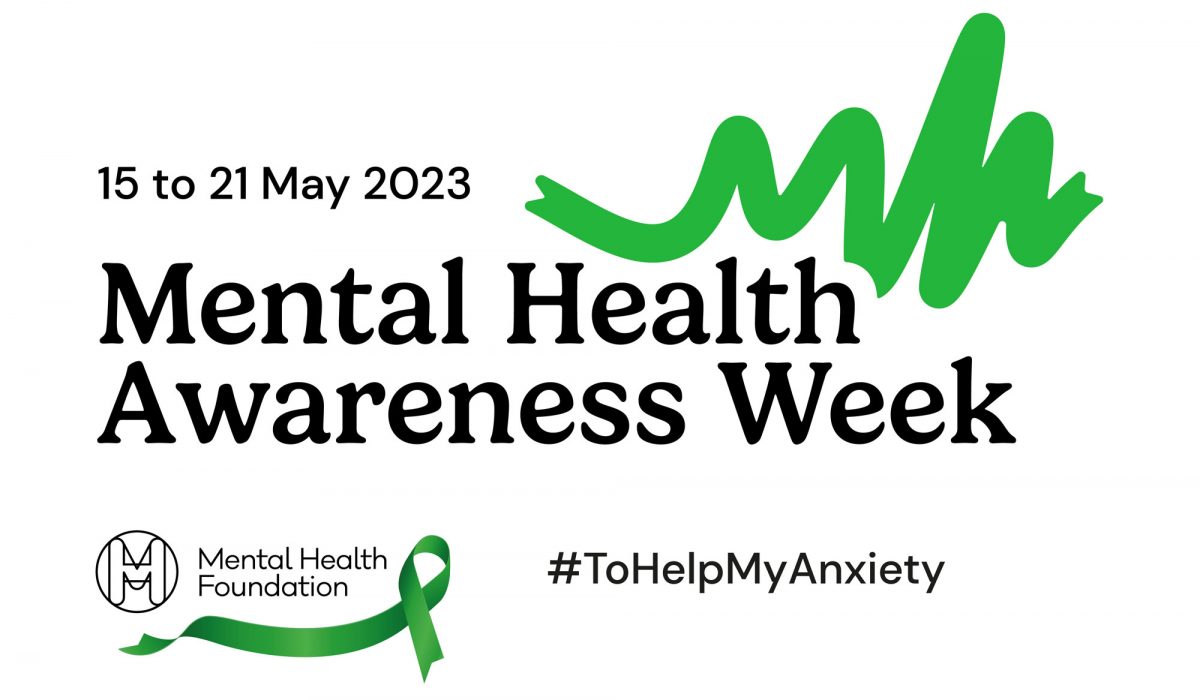Taking care of your mental health: focus on anxiety
The theme of this year’s Mental Health Awareness Week is anxiety.
“Anxiety is what we feel when we are worried, tense or afraid – particularly about things that are about to happen, or which we think could happen in the future.”
Mind, 2023
In the Library, we often talk to students who are worried about all kinds of things. As a student, feeling anxious about your university work is common and can include:
- Stress, anxiety and self-doubt about assessment, expectations, marks and failure.
- Being risk averse and worried about ‘doing it wrong’.
- Feeling unsure about how to do research and study independently.
- A lack of resilience and engagement with your studies.
(Holdsworth et al., 2018)
You might also be worried about other things like your home life, work, money or social situations. However, experiencing anxiety is understandable when we are feeling stressed.

Take positive steps to improve your mental health
It is normal to experience anxiety from time to time and you may notice that it affects your mental and physical state. But, if it is becoming an issue and it is starting to impact on your daily life, you don’t need to put up with it. There are things you can do and there are people who can help you:
- Talk to someone you trust. Is there a friend, family member or tutor you can speak with? Sometimes telling someone about your worries can help to relieve the anxiety.
- Access the University’s Wellbeing & Counselling service. We have professionally trained Wellbeing Advisors and Counsellors who can support you through your concerns.
- Self-care strategies. Think about what helps you when you are feeling anxious. For some, focusing on something they can see, hear, smell or touch can bring them back to the present. Others might find taking a walk outside, reading a self-help article or writing down their thoughts can help.
- Breathing exercises. A quick and easy way to calm down is to breathe in slowly through the nose to the count of 3, then exhale through the mouth to the count of 6. Headspace has more breathing activities that could help.
- Use the Library spaces and resources. We have quiet spaces and a refreshment room where you can make yourself a drink. Our staff can also signpost you to support and you can get access to lots of wellbeing books and resources.
Whatever you decide to do, remember that it is important to look after your mental health. It is not selfish or indulgent to practise self-care. Also, you are not alone – reach out if you need to.
Help and support
- Rafiki – Students’ Union’s peer support listening service.
- Mind – Mental health charity.
- The Samaritans – Non-judgemental listening service.
References
Holdsworth, S., Turner, M., & Scott-Young, C.M. (2018) … Not drowning, waving. Resilience and university: a student perspective, Studies in Higher Education, 43(11), 1837-1853. doi: 10.1080/03075079.2017.1284193
Mind. (2023). Anxiety and panic attacks. Retrieved 22 March, 2023.

